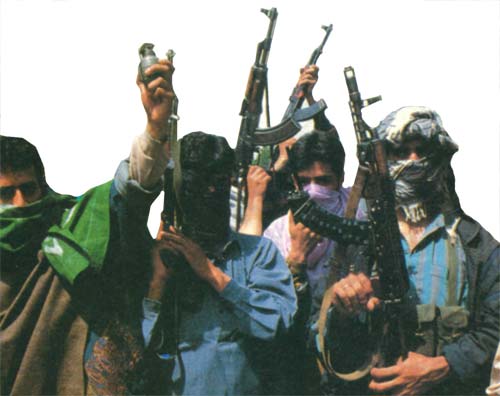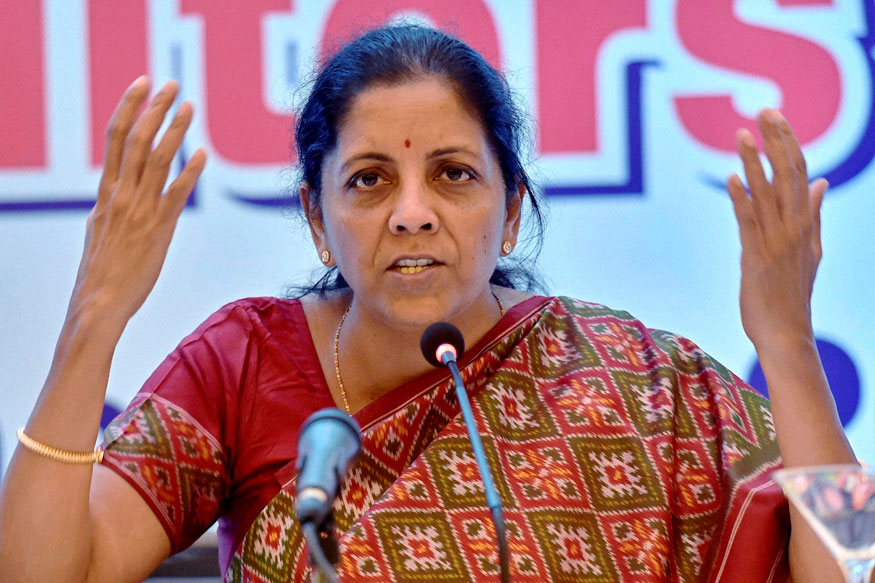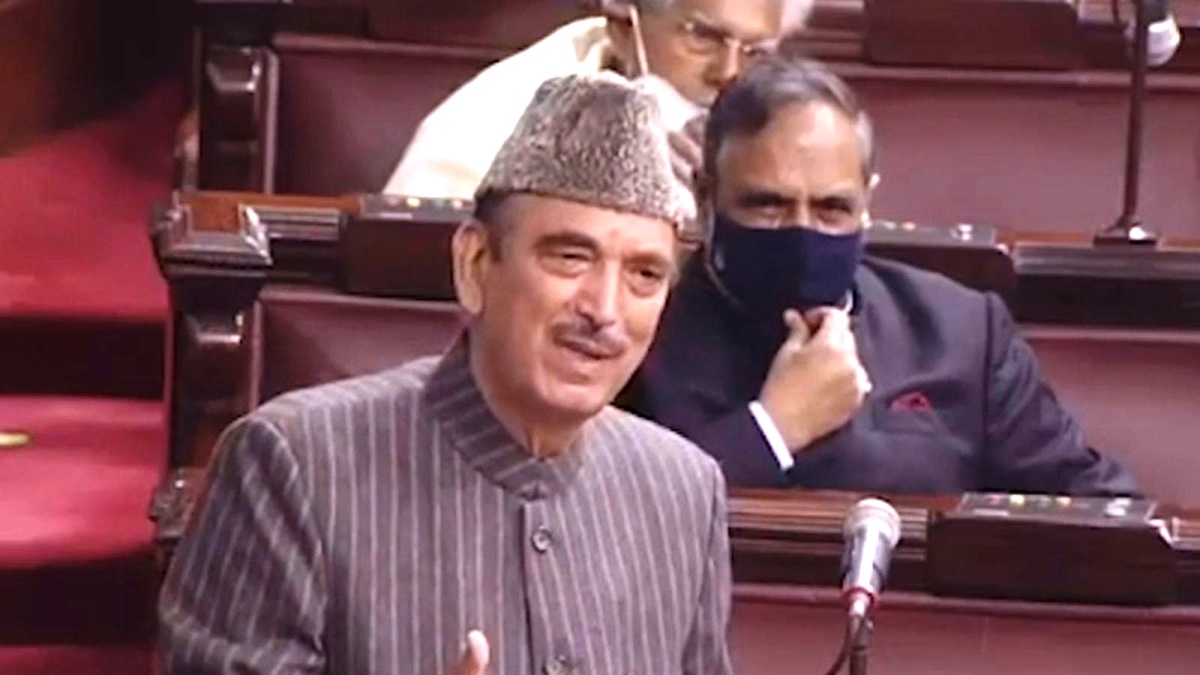The diplomatic cable, leaked by the whistle-blower website Wikileaks, is indexed as 09NEWDELHI195 and written and dispatched on January 30, 2009. Authored by David C Mulford, the US ambassador in Delhi, it offers the details of the Obama administration’s ideas and the concerns that Delhi has on any third party intervention on Kashmir. It, however, offers ideas about how a calm diplomacy can help

SUBJECT: JAMMU AND KASHMIR: INDIAN ANXIETY OVER NEW
ADMINISTRATION’S POLICY
- (C) Summary: There is uncertainty and anxiety within the Indian foreign policy establishment over the direction the new U.S. administration might take on its India policy. The principal areas of Indian concern are:
— renewed U.S. activism on Kashmir;
— replacement of the stand-alone bilateral partnership by a policy that views India primarily through the prism of a regional strategy;
— perception that U.S. is unable or unwilling to exert sufficient pressure on Pakistan to take action against those responsible for the Mumbai attacks.
This message examines Indian angst over perceived U.S. interest in playing an active role in the Kashmir dispute. Subsequent messages will discuss the other two Indian concerns.
End Summary.
Indian Anxieties
- (C) In the days following the U.S. presidential elections and again around Inauguration Day, the Indian media focused intensely on trying to analyze the implications for India of a new administration in Washington. There are two principal areas that cause the Indian foreign policy establishment the greatest angst: talk of renewed U.S. activism on Kashmir that aims to win Indian concession in return for Pakistani assistance on Afghanistan; and speculation that India will be viewed by the new administration primarily through the prism of a regional strategy rather than the context of a stand-alone bilateral partnership that is global in its scope.
- (C) A third issue that has received some attention by analysts is the risk of damage to the U.S.-India relationship if the U.S. is unable or unwilling to exert sufficient pressure on Pakistan to clamp down on the jihadis who have targeted India, particularly those responsible for the Mumbai attacks.
Some Reassurance
- (C) U.S. statements and actions in the last two months have helped assuage Indian feelings of disquiet about the transition and reassure them that there will be some measure of continuity in U.S. policy. Then president-elect Obama’s statement following the Mumbai attacks in November that India has a right to defend itself and President Obama’s cordial January 26 Republic Day message were warmly received in
India. The absence of Kashmir from the portfolio of Special Envoy for Afghanistan and Pakistan Ambassador Holbrooke has also provided some comfort to the Indian foreign policy establishment, although many still believe that the new administration will seek to pressure India on Kashmir.
Pakistan President Asif Zardari’s January 28 Op-ed in the Washington Post in which he urged Ambassador Holbrooke to bring about a resolution of the Kashmir dispute and otherwise insert the United States into Indo-Pakistan relations received wide coverage in the India press.
India: Wise U.S. Policy on Kashmir To Date
- (C) Indians believe that the hands-off U.S. policy on Kashmir that was followed by the previous U.S. administration was wise and successful. The Prime Minister reemphasized this during a one-on-one meeting with the Ambassador on January 13. In the view of many, the success of the composite dialogue and track two engagement as well as progress on Kashmir was made possible in no small part because of the low key U.S. role which allowed India and Pakistan to work issues out between themselves rather than seek U.S. involvement. Even as the USG publicly declined to get involved in the Kashmir dispute, we intensified our contacts with the GOI, the government of Jammu and Kashmir, political parties and security forces in the state, separatists, the business community, media and civil society.
We continue to point out human rights failings while encouraging all parties in the state to peacefully seek reconciliation and accommodation. That consistent but low-key engagement will continue and should intensify as India considers the next steps in its normalization policy following the high-turnout state assembly elections that took place late last year. The GOI no longer views us with suspicion when we travel to the state because we have built a reservoir of credibility.
- (C) Note: The publicly stated U.S. position on Kashmir during the previous administration was: “It is not for the United States to determine the status of Jammu and Kashmir.
A resolution must come through a process of engagement between India and Pakistan that takes into account the wishes of the people of Jammu and Kashmir.” Ambassador Mulford has avoided travel to Kashmir throughout his five-year term to underscore the policy of the United States to no manager of the Kashmir dialogue between India and Pakistan. Nor has any
Senator, House Representative or other senior USG official visited Jammu and Kashmir during this period. Embassy officers have regularly visited the state and been welcomed there by the GOI as well as the state government.
End Note.

Indian Taboo: Third Party Role in Kashmir
- (C) Over the past decades, India has steadfastly rejected any offers of a third party role in finding a solution to the Kashmir issue. The concern of successive Indian governments has been that third parties, whether they be the U.N., the United States, or one or more West European countries, would pressure India to make concessions that would be politically impossible within India. In their view, any territorial or sovereignty concessions would impinge on the very self-identity of the country as a secular country that accommodates India’s diverse population, including religious and ethnic minorities. Over time, it has become an article of faith within the foreign policy establishment to respond sharply and angrily to any proposal of an international role in Kashmir.
- (C) In this context, in early November then-presidential candidate Obama’s remarks on Kashmir in interviews with Time magazine and MSNBC received headline coverage in India. Most commentators expressed grave concern over his suggestion that the U.S. work with Pakistan and India to resolve the Kashmir crisis and this effort be a top priority for the new administration. They also were even more hostile to the idea of a U.S. special envoy for Kashmir. Strategic commentator C. Raja Mohan viewed the statements as a U.S. offer to Pakistan: American activism on Kashmir in return for Pakistani cooperation on Afghanistan.
- (C) The GOI and the Indian foreign policy and security establishment believe that the political and security environment today in Kashmir is such that the state could be poised for a sustained period of reconciliation and prosperity. With Omar Abdullah as Chief Minister, they have in place a young, forward thinking leader who could move the state out of its two decades of political paralysis. The Indian fear is that U.S. attention to the dispute will upset this delicately balanced scenario. The arguments offered by Indians against any third party role in Kashmir will revolve around the following themes in which they will suggest that international involvement in Kashmir would:
— not be welcome because Jammu and Kashmir is an internal issue and India will not countenance any foreign interference in its internal affairs (i.e., the standard Indian sovereignty line);
— embolden Pakistani jihadis whose agenda is increasingly being rejected by Kashmiris;
— strengthen the Kashmiri separatists whose agenda is increasingly being rejected by Kashmiris;
— undermine the gains that have been made in the last four years in restoring normalcy in the state;
— roll back the gains of recent months when India managed to conduct an election with no evidence of compulsion and a record voter turnout after a outbreak of protests in the summer;
— undercut the mainstream political parties which have taken considerable risk in engaging in the electoral process and rejecting separatism;
— force India to back off from the bilateral composite dialogue and the track two discussions which have yielded good results; and
— be unwise as the United States is not a impartial arbitrator because it has other compelling interests — such as ensuring Pakistani cooperation on Afghanistan — that favor a tilt towards Pakistan.
India: Kashmir Not Inspiration for Terrorism
- (C) The Indian foreign policy establishment firmly rejects the two arguments proposed by those who consider resolution of Kashmir a necessary condition for eliminating the terrorist threat in South Asia and stabilizing Afghanistan. First, the Indians do not buy the thesis that the Kashmir dispute provides the inspiration for terrorism in the region today.
In their view the terrorist attacks in the region, particularly against India, are driven today by a radical pan-Islamist ideology whose ultimate aim is to establish Muslim rule over all of South Asia. Such an ideology would merely view Indian concessions or weakness on Kashmir as a battlefield victory in a long war it is waging to gain control over all of South Asia.
- (C) The fierce Indian reaction against U.K. Foreign Secretary David Miliband’s recent comments that linked the Mumbai terrorist attacks to Kashmir and his suggestion that India needs to resolve Kashmir illustrate the Indian sensitivity to any external interference in Kashmir (Ref A). Miliband’s connection between Mumbai and Kashmir also fed the long-held Indian grievance that the international community dismisses decades of terrorism against India as “Kashmir-related” and, therefore, somehow acceptable. The scorn heaped on Miliband has been interpreted as a clear message to the United States.
On January 29, C. Raja Mohan told an elite foreign policy audience in Delhi that India had deployed a time-honored maneuver: “Kill the chicken to scare the monkey.” Delhi’s mandarins believe they have succeeded thus far in dissuading the U.S. monkey from pursuing an overt role on Kashmir by their highly public rejection of Miliband’s views.
India: Pakistan Unwilling/Incapable of Fighting Jihadis
- (C) Second, the India foreign policy establishment finds unconvincing the argument that progress on Kashmir will allow Pakistan to pivot from its eastern border to help fight the Taliban and other extremists on its western border. The Indians view this logic as seductively simplistic. They observe that India and Pakistan have made real progress on the composite dialogue. Border tensions have been minimal for more than four years. India has assiduously avoided for over four years any action that would cause Pakistan discomfort on its eastern border, observing a strict cease fire on the line of control, avoiding any comments on political instability within Pakistan, and putting in place confidence building measures such as relaxed border restrictions on people and trade.
- (C) Yet, these strategists contend, all this reassurance has not helped strengthen Pakistani capacity and/or willingness to fight extremism on the Afghanistan border. In fact, the situation on the western border has steadily deteriorated. Some of these analysts believe that the assumption that Pakistan is strong enough to take on jihadis, whether on the western border or elsewhere within the country, should be reexamined. They argue that the Pakistani state may no longer control its jihadi assets and has itself become an pawn of the jihadis. In fact, one commentator believes that any “victory” (i.e., concessions) for Pakistan in Kashmir would be seen as a victory for the jihadis rather than the Pakistani government and would spell the “death knell of the Pakistani state structure and put it at the mercy of the Islamists.”
Others argue that even if it had the capacity to fight the jihadis on its western border, Pakistan has no intention of really eradicating the extremists because they serve a useful purpose in providing Pakistan leverage with Afghanistan and the United States.
- (C) Many in the foreign policy establishment suggest defining up-front what an eventual settlement would look like. Practically no one believes that a solution that involves shifting boundaries will ever be politically possible for any government in India. The most feasible solution that most analysts see is acceptance of the Line of Control as the international border and Pakistani agreement not to foment trouble in Kashmir either directly or through support for Kashmir-focused jihadis in Pakistan. In their view, the resolution of Kashmir then becomes a matter of India finding some “soft borders” packaging — such as relaxing restriction on transit of people and goods — that allows Pakistan to sell the idea to its people. There is skepticism that the current Pakistani civilian and military leadership has the political capital to take bold decisions on such an emotive issue. There is also deep distrust in the Pakistani military, which many Indians believe has no interest in seeking a resolution of the Kashmir issue.
Dissenters: No Need to be Defensive
- (C) While few in the Indian foreign policy establishment would quarrel with a near consensus view that U.S. activism in Kashmir is unwise, there are several commentators who believe that the GOI is unduly nervous about USG intentions and should have no reason to react defensively on issues relating to Kashmir. They even see opportunity in the new administration’s determination to think of South Asia in an integrated manner. In their view, knee-jerk defensiveness is ingrained within the MEA and a hangover from decades past when India was economically weak and there was some justification in the GOI fearing that the Indian state could not withstand a concerted international effort, particularly from the United States, to force concessions from India on Kashmir. The argument continues that these Indian policy makers do not realize that India’s political and economic strength today prevents other powers from exerting such pressure and allows India to more confidently resist pressure if it is exerted. If India could resist when it was weak, it surely can fend off pressure when it is an acknowledged rising power, they argue.
- (C) Second, according to this camp, the international landscape has changed significantly in the last decade, with the U.S. and India forging a strong partnership. In this growing relationship, the India-Pakistan-Kashmir dimension, while important, is only one of the many interests that the
United States must consider when engaging with India. The United States would have to make trade-offs between competing interests, thus reducing the intensity of any pressure that it could bring to bear on the Kashmir issue.
- (C) Third, some analysts believe that India should welcome the opportunity to engage with the United States and others on Kashmir because it has a good story to tell. The GOI can point to its record over the last five years in strengthening development, enhancing the economic well-being of Kashmiris, reducing violence and restoring peace and normalcy. It can highlight the record turnout at the November-December elections to the state legislature as a signal that Kashmiris today soundly reject jihadi and separatist calls.
Comment: Indians Will Share Ideas Privately
- (C) Despite pervasive and strongly held Indian views against any U.S. role in the Kashmir, we believe that due to the success and credibility of our low-key policy, the GOI is not averse to sharing ideas with us on Kashmir. It may also see that we can add value due to our influence with Pakistan.
What it will find objectionable is any arm-twisting or any public hint that the United States is pressuring India to move in a particular way on Kashmir. If this were to be the public perception, our role would quickly become counterproductive as domestic political pressure will force India to harden its stance and pull even further back from where it would have been on its own.
- (C) In order to be relevant we must walk a delicate line that is mindful of Indian sensitivities, recognizes the limits of what we can achieve, but reinforces steadily the urgency of working with Pakistan to reach a mutually acceptable resolution of the Kashmir dispute which takes into account the wishes of the Kashmiri people. Indian National Security Advisor M.K. Narayanan told Senator Kerry in December that the two countries had agreed to a Kashmir formula in late 2006, but Pervez Musharraf’s steadily increasing domestic political difficulties derailed the deal.
A solution, therefore, does exist. We should quietly encourage India and Pakistani to find that solution, supporting them when we can from behind the scenes and without leaving our fingerprints. Obviously we should not expect any breakthrough in the short-term because the cloud of the Mumbai attacks still hangs over the Indo-Pakistan relationship and the impending April-May national elections constrain GOI flexibility on Kashmir.
MULFORD















